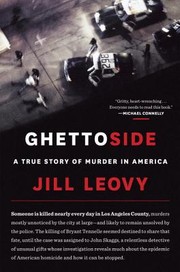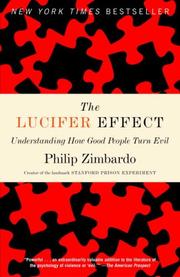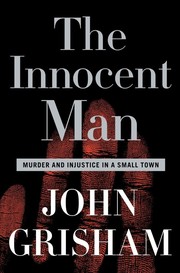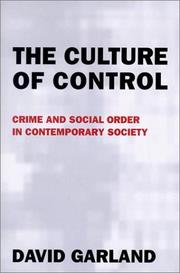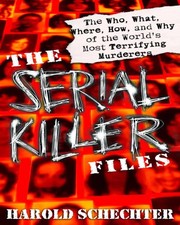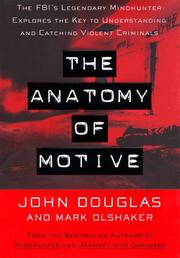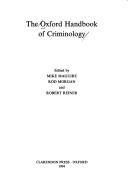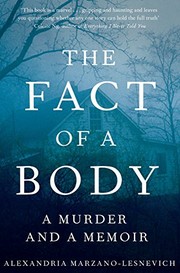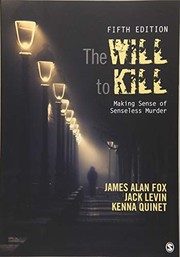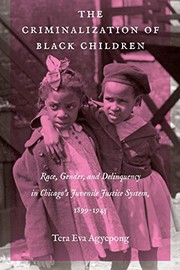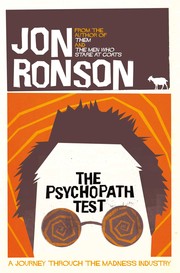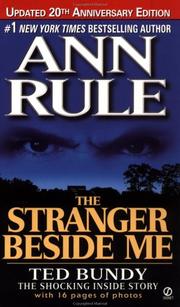Are you fascinated by the study of crime and its causes? Whether you’re a student, professional, or simply an enthusiast, delving into the world of criminology through a good book can be an enriching experience. If you’re looking to expand your knowledge in this field, we’ve got you covered with a list of the 20 best books on criminology. From classic works to contemporary masterpieces, these criminology books offer insightful perspectives on the criminal justice system, criminal behavior, and the societal impact of crime. Get ready to explore the complexities of criminology through these compelling reads!
Contents
- 1 20 Best Criminology Books
- 2 The Anatomy of Violence: The Biological Roots of Crime
- 3 The New Jim Crow: Mass Incarceration in the Age of Colorblindness
- 4 Ghettoside: A True Story of Murder in America
- 5 The Lucifer Effect: Understanding How Good People Turn Evil
- 6 The Innocent Man: Murder and Injustice in a Small Town
- 7 The Culture of Control: Crime and Social Order in Contemporary Society
- 8 The Serial Killer Files: The Who, What, Where, How, and Why of the World’s Most Terrifying Murderers
- 9 The Condemnation of Blackness: Race, Crime, and the Making of Modern Urban America
- 10 The Anatomy of Motive: The FBI’s Legendary Mindhunter Explores the Key to Understanding and Catching Violent Criminals
- 11 The Oxford Handbook of Criminology
- 12 The Criminal Brain: Understanding Biological Theories of Crime
- 13 The Fact of a Body: A Murder and a Memoir
- 14 The Will to Kill: Making Sense of Senseless Murder
- 15 The Cyber Effect: A Pioneering Cyberpsychologist Explains How Human Behavior Changes Online
- 16 The Criminalization of Black Children: Race, Gender, and Delinquency in Chicago’s Juvenile Justice System, 1899-1945
- 17 The Anatomy of Motive: The FBI’s Legendary Mindhunter Explores the Key to Understanding and Catching Violent Criminals
- 18 Criminal Profiling: An Introduction to Behavioral Evidence Analysis
- 19 The Psychopath Test: A Journey Through the Madness Industry
- 20 Serial Killers: The Method and Madness of Monsters
- 21 The Stranger Beside Me: The Shocking Inside Story of Serial Killer Ted Bundy
- 22 Final Thoughts on Best Criminology Books
- 23
20 Best Criminology Books
The Anatomy of Violence: The Biological Roots of Crime
by Adrian Raine
The Anatomy of Violence: The Biological Roots of Crime by Adrian Raine is a groundbreaking book on criminology that delves into the complex relationship between biology and criminal behavior. Raine, a leading neurocriminologist, presents compelling evidence that biological factors such as genetics, brain abnormalities, and hormonal imbalances play a significant role in shaping criminal tendencies. Through engaging case studies and cutting-edge research, Raine explores the biological markers of violence and offers a thought-provoking analysis of how these factors intersect with environmental influences to shape criminal behavior.
This criminology book challenges traditional notions of criminality and sheds light on the intricate interplay between nature and nurture in the development of criminal behavior. Raine’s accessible writing style and compelling storytelling make The Anatomy of Violence a captivating and informative read for anyone interested in understanding the biological underpinnings of crime. This book about criminology is a must-read for policymakers, law enforcement professionals, and anyone seeking a deeper understanding of the complexities of criminal behavior.
The New Jim Crow: Mass Incarceration in the Age of Colorblindness
by Michelle Alexander
The New Jim Crow: Mass Incarceration in the Age of Colorblindness by Michelle Alexander is a groundbreaking book about criminology that explores the racial injustice and systemic discrimination present in the American criminal justice system. Alexander argues that the mass incarceration of African Americans is a new form of racial control and oppression, similar to the Jim Crow laws that enforced segregation in the South.
Through meticulous research and compelling analysis, Alexander reveals how the War on Drugs, mandatory minimum sentences, and the criminalization of minor offenses have disproportionately affected people of color, leading to a new era of segregation and disenfranchisement. She challenges the notion of a colorblind society and exposes the racial bias inherent in the criminal justice system.
The New Jim Crow is a powerful and eye-opening book on criminology that sheds light on the deep-rooted inequalities and injustices perpetuated by the criminal justice system. It is essential reading for anyone interested in understanding the intersection of race, law, and incarceration in America.
Ghettoside: A True Story of Murder in America
by Jill Leovy
Ghettoside: A True Story of Murder in America by Jill Leovy is a compelling book about criminology that delves into the epidemic of violence and murder in inner-city neighborhoods. Leovy, a respected journalist, uses her expertise to carefully examine the murder of a young black man in South Los Angeles and the subsequent investigation led by a dedicated detective. The book takes readers on a gripping journey through the criminal justice system and the complexities of solving homicides in communities plagued by violence and mistrust.
Leovy’s writing is both thought-provoking and deeply insightful, offering a powerful exploration of the societal and institutional factors that contribute to high crime rates in urban areas. With meticulous research and compelling storytelling, Ghettoside provides a unique perspective on the challenges of policing and justice in America’s most dangerous neighborhoods. This book about criminology is a must-read for anyone interested in understanding the realities of violence and crime in our society.
The Lucifer Effect: Understanding How Good People Turn Evil
by Philip Zimbardo
The Lucifer Effect: Understanding How Good People Turn Evil by Philip Zimbardo is a captivating book on criminology that delves into the dark depths of human behavior. Drawing on his famous Stanford Prison Experiment, Zimbardo explores the factors that can lead ordinary individuals to commit acts of cruelty and evil. Through a combination of psychological analysis and real-life examples, Zimbardo illustrates how situational factors and authority can influence behavior, shedding light on the potential for evil within all of us.
This thought-provoking criminology book challenges readers to consider the implications of Zimbardo’s findings for society at large, from understanding the behavior of perpetrators in cases of abuse and violence to the role of systems and institutions in perpetuating harmful behaviors. The Lucifer Effect is a gripping and insightful exploration of the human capacity for both good and evil, and a must-read for anyone interested in the darker aspects of human nature.
The Innocent Man: Murder and Injustice in a Small Town
by John Grisham
The Innocent Man: Murder and Injustice in a Small Town is a gripping non-fiction book on criminology written by John Grisham. This compelling book delves into the true story of Ron Williamson, a former minor league baseball player who was wrongfully convicted of murder in Ada, Oklahoma. Grisham skillfully unravels the flawed criminal justice system that led to Williamson’s wrongful conviction and the harrowing consequences it had on his life.
Grisham’s meticulous research and powerful storytelling shed light on the alarming prevalence of wrongful convictions and the devastating impact it has on individuals and their communities. The book about criminology is a riveting exploration of the intersection of law, justice, and human fallibility. Grisham’s masterful narrative will keep readers on the edge of their seats as they uncover the shocking truth behind this tragic case.
The Innocent Man is a must-read for anyone interested in criminology, true crime, and the pursuit of justice. Grisham’s insightful examination of this real-life legal drama will leave a lasting impression on readers long after they’ve turned the final page.
The Culture of Control: Crime and Social Order in Contemporary Society
by David Garland
The Culture of Control: Crime and Social Order in Contemporary Society by David Garland is a thought-provoking book on criminology that delves into the complex relationship between crime and social order in modern society. Garland examines how the traditional methods of crime control have shifted in response to the changing social and political landscape, leading to the emergence of a new “culture of control.”
Through meticulous research and insightful analysis, Garland explores the various factors that have contributed to this shift, including the influence of media, technology, and politics. He also critically examines the implications of this cultural shift on issues such as mass incarceration, surveillance, and the erosion of civil liberties.
This book about criminology challenges readers to question the effectiveness and ethical implications of contemporary approaches to crime control, making it an essential read for anyone interested in understanding the complexities of social order and criminal justice in the modern world.
The Serial Killer Files: The Who, What, Where, How, and Why of the World’s Most Terrifying Murderers
by Harold Schechter
The Serial Killer Files by Harold Schechter is a chilling and comprehensive book about criminology that delves into the twisted minds of some of the most notorious serial killers in history. Schechter provides a gripping overview of the who, what, where, how, and why of these terrifying murderers, offering readers a deep insight into the darkest corners of the human psyche.
Through meticulous research and a masterful storytelling approach, Schechter brings to life the heinous crimes of serial killers, unraveling the complex web of their motivations and methods. From infamous figures like Ted Bundy and Jeffrey Dahmer to lesser-known but equally disturbing individuals, this criminology book offers a disturbing yet captivating exploration of the world of serial murder.
With its compelling narrative and in-depth analysis, The Serial Killer Files is a must-read for true crime enthusiasts, psychology aficionados, and anyone fascinated by the darker aspects of human behavior. Schechter’s expertise in the subject matter shines through, making this book an essential addition to any library of true crime literature.
The Condemnation of Blackness: Race, Crime, and the Making of Modern Urban America
by Khalil Gibran Muhammad
The Condemnation of Blackness: Race, Crime, and the Making of Modern Urban America by Khalil Gibran Muhammad is a groundbreaking book on criminology that delves into the historical roots of racialized crime and its impact on the development of urban America. Muhammad meticulously examines how the association of blackness with criminality was constructed and perpetuated by policymakers, social scientists, and the media, ultimately shaping the way we understand and respond to crime today.
Through extensive research and compelling analysis, Muhammad exposes the deep-seated racism that has influenced criminal justice policies and practices, perpetuating inequality and injustice. This book about criminology sheds light on the enduring legacy of racialized crime and its profound impact on the social and economic disparities in America’s urban centers.
The Condemnation of Blackness is an essential read for anyone interested in understanding the intersection of race, crime, and urban development, making it a must-read for scholars, activists, and policymakers alike.
The Anatomy of Motive: The FBI’s Legendary Mindhunter Explores the Key to Understanding and Catching Violent Criminals
by John E. Douglas and Mark Olshaker
The Anatomy of Motive is a captivating book on criminology penned by John E. Douglas, a former FBI profiler, and Mark Olshaker. In this gripping exploration, the authors delve into the intricate and often perplexing world of violent criminals, offering a unique perspective on the key to understanding and catching them.
Douglas, known for his groundbreaking work in criminal profiling, provides an in-depth analysis of the motives that drive individuals to commit heinous acts, shedding light on the psychological and behavioral patterns that underpin their actions. Drawing on his extensive experience and expertise, he offers invaluable insights into the inner workings of the criminal mind, examining the complex interplay of factors that contribute to criminal behavior.
Through a series of riveting case studies and firsthand accounts, Douglas and Olshaker present a compelling narrative that unravels the mysteries of criminal motivation. Their thought-provoking exploration of the human psyche and its dark manifestations makes The Anatomy of Motive a must-read for anyone fascinated by the complexities of human behavior and the pursuit of justice.
The Oxford Handbook of Criminology
by Mike Maguire, Rod Morgan, and Robert Reiner
The Oxford Handbook of Criminology, co-authored by Mike Maguire, Rod Morgan, and Robert Reiner, is a comprehensive and insightful book on criminology. This authoritative text provides an in-depth exploration of the key issues, debates, and theories within the field of criminology. The book covers a wide range of topics, including the social, political, and cultural aspects of crime, the criminal justice system, and the impact of globalization on crime and security.
With contributions from leading experts in the field, this book about criminology offers a critical analysis of contemporary issues and challenges in the study of crime and criminal behavior. It also examines the intersections between criminology and other disciplines, such as sociology, psychology, and law, providing a multidisciplinary perspective on the subject.
Whether you are a student, academic, or practitioner in the field, The Oxford Handbook of Criminology is an essential resource for anyone seeking a comprehensive understanding of criminology and its relevance to contemporary society.
The Criminal Brain: Understanding Biological Theories of Crime
by Nicole Rafter
The Criminal Brain: Understanding Biological Theories of Crime by Nicole Rafter is a fascinating book on criminology that delves into the biological explanations for criminal behavior. Rafter explores the historical roots of biological theories of crime, from phrenology to contemporary neuroscience, and examines how these theories have shaped our understanding of criminal behavior.
Through a comprehensive analysis of scientific studies and case studies, Rafter discusses the complexities of the relationship between genetics, brain structure, and criminal conduct. She also critically evaluates the implications of biological theories for criminal justice policies and practices.
This insightful book about criminology challenges readers to consider the ethical and social implications of using biological explanations for crime, and encourages a more nuanced understanding of criminal behavior. Rafter’s engaging writing style and thought-provoking analysis make The Criminal Brain a must-read for anyone interested in the intersection of biology and criminality.
The Fact of a Body: A Murder and a Memoir
by Alexandria Marzano-Lesnevich
The Fact of a Body: A Murder and a Memoir by Alexandria Marzano-Lesnevich is a gripping and haunting book about criminology that intertwines the author’s personal story with the case of a convicted murderer. Marzano-Lesnevich, a law student, becomes obsessed with the case of Ricky Langley, a child molester and murderer. As she delves into the details of the crime, she uncovers unsettling parallels between Langley’s life and her own. This powerful memoir not only explores the complexities of the criminal justice system but also delves into the author’s own traumatic childhood experiences. The book is a compelling exploration of the nature of truth, memory, and the impact of crime on both the victims and the perpetrators. It is a thought-provoking and deeply emotional read that is sure to leave a lasting impression on anyone interested in criminology.
The Will to Kill: Making Sense of Senseless Murder
by James Alan Fox and Jack Levin
The Will to Kill: Making Sense of Senseless Murder by James Alan Fox and Jack Levin is a fascinating book on criminology that delves into the dark and perplexing world of senseless murder. The authors, both renowned experts in the field of criminology, offer a comprehensive analysis of the motives and mindsets behind seemingly inexplicable acts of violence. Through a combination of in-depth research and compelling case studies, they shed light on the complex psychological and societal factors that drive individuals to commit such heinous crimes.
This book about criminology challenges the reader to confront the uncomfortable reality of senseless murder and provides valuable insights into the patterns and motivations that underpin these acts. Fox and Levin’s expertise and engaging writing style make this criminology book a must-read for anyone seeking a deeper understanding of the human capacity for violence. Whether you’re a student of criminology, a true crime enthusiast, or simply curious about the darker aspects of human behavior, The Will to Kill is sure to captivate and enlighten you.
The Cyber Effect: A Pioneering Cyberpsychologist Explains How Human Behavior Changes Online
by Mary Aiken
The Cyber Effect by Mary Aiken is a groundbreaking book on criminology that delves into the fascinating world of cyberpsychology. Dr. Aiken, a pioneering cyberpsychologist, explores the ways in which human behavior is influenced and transformed by the online environment. Drawing on her extensive research and clinical experience, she sheds light on the impact of technology on our brains, relationships, and society as a whole.
Through compelling case studies and real-life examples, Dr. Aiken examines the psychological and behavioral consequences of our increasingly digitized world. She explores topics such as cyberbullying, online addictions, and the effects of social media on our mental well-being. With a keen eye for detail and a deep understanding of human nature, she offers valuable insights into the ways in which our online lives intersect with our offline reality.
Engaging and thought-provoking, The Cyber Effect is a must-read for anyone interested in the intersection of psychology and technology. Dr. Aiken’s expertise and passion for her subject shine through, making this book about criminology a compelling and informative read.
The Criminalization of Black Children: Race, Gender, and Delinquency in Chicago’s Juvenile Justice System, 1899-1945
by Tera Eva Agyepong
The Criminalization of Black Children: Race, Gender, and Delinquency in Chicago’s Juvenile Justice System, 1899-1945 by Tera Eva Agyepong is a compelling and insightful book on criminology that explores the historical roots of the criminalization of black children in Chicago. Agyepong delves into the complex intersections of race, gender, and class, shedding light on how these factors have influenced the treatment of black youth within the juvenile justice system.
Through meticulous research and analysis, Agyepong uncovers the ways in which black children were disproportionately targeted and punished, and how their experiences were shaped by societal attitudes and institutional biases. By examining case studies and historical documents, the author provides a comprehensive understanding of the dynamics that contributed to the criminalization of black children during this period.
This criminology book offers valuable insights into the systemic issues that continue to impact black youth today, making it essential reading for anyone interested in understanding the historical roots of racial disparities within the juvenile justice system.
The Anatomy of Motive: The FBI’s Legendary Mindhunter Explores the Key to Understanding and Catching Violent Criminals
by John E. Douglas
The Anatomy of Motive is a captivating book on criminology by John E. Douglas, a former FBI agent and legendary criminal profiler. In this insightful exploration, Douglas delves into the minds of violent criminals, offering a fascinating look at the key to understanding and catching them. Drawing from his extensive experience in the Behavioral Science Unit, Douglas provides a gripping analysis of the motives behind heinous crimes, shedding light on the psychology of perpetrators and their behavioral patterns.
Through real-life case studies and in-depth interviews, Douglas provides readers with a compelling glimpse into the world of criminal profiling, offering valuable insights into the techniques used to track down and apprehend dangerous individuals. With a blend of engaging storytelling and expert analysis, The Anatomy of Motive is a must-read for anyone interested in the intricacies of criminal behavior and the methods used to apprehend violent offenders. This criminology book is a riveting journey into the minds of criminals, offering a unique perspective on the motives behind their actions.
Criminal Profiling: An Introduction to Behavioral Evidence Analysis
by Brent E. Turvey
Criminal Profiling: An Introduction to Behavioral Evidence Analysis by Brent E. Turvey is a fascinating book on criminology that delves into the intricate world of criminal behavior and investigative techniques. Turvey, a renowned expert in forensic science, provides a comprehensive overview of the process of criminal profiling and behavioral evidence analysis. This book offers valuable insights into the mindset of offenders, the significance of behavioral evidence, and the application of profiling in criminal investigations.
Turvey’s in-depth exploration of various profiling methods, case studies, and real-world examples makes this book about criminology both engaging and informative. Whether you’re a student of criminal justice, a law enforcement professional, or simply a curious reader interested in understanding the complexities of criminal behavior, this criminology book is a must-read. It offers a unique blend of theory and practical application, making it an essential resource for anyone seeking to gain a deeper understanding of the fascinating field of criminal profiling.
The Psychopath Test: A Journey Through the Madness Industry
by Jon Ronson
The Psychopath Test: A Journey Through the Madness Industry by Jon Ronson is a captivating book on criminology that delves into the world of psychopathy and the mental health industry. Ronson takes readers on a thought-provoking journey, exploring the concept of psychopathy and its diagnosis, as well as the ethical implications of labeling individuals as psychopaths.
Through a series of interviews with psychologists, psychiatrists, and self-proclaimed psychopaths, Ronson uncovers the complexities of diagnosing and treating individuals with antisocial personality disorders. He also investigates the controversial history of the psychopathy checklist, shedding light on the sometimes arbitrary nature of psychiatric diagnoses.
With his trademark wit and curiosity, Ronson navigates the murky waters of the madness industry, raising important questions about the definition of sanity and the impact of labeling individuals as psychopaths. This book about criminology is a compelling exploration of the human mind and the societal constructs that attempt to understand and categorize it.
Serial Killers: The Method and Madness of Monsters
by Peter Vronsky
Serial Killers: The Method and Madness of Monsters by Peter Vronsky is a captivating book on criminology that delves into the chilling minds of some of the most notorious serial killers in history. Vronsky meticulously examines the psychological, sociological, and historical factors that contribute to the development of these monstrous individuals.
Through in-depth research and compelling storytelling, Vronsky offers a comprehensive analysis of the methods and motives behind the heinous crimes committed by serial killers. This book about criminology provides a fascinating exploration of the twisted psyches of these individuals and the impact they have had on society.
Readers will find themselves engrossed in the detailed accounts of infamous cases and the author’s expert analysis of the patterns and behaviors of serial killers. Whether you’re a true crime enthusiast or simply interested in the darker side of human nature, Serial Killers is a must-read criminology book that offers a haunting yet enlightening glimpse into the minds of these monsters.
The Stranger Beside Me: The Shocking Inside Story of Serial Killer Ted Bundy
by Ann Rule
The Stranger Beside Me is a gripping book about criminology that delves into the shocking and chilling true story of serial killer Ted Bundy. Written by acclaimed true crime author Ann Rule, this book offers a unique perspective as Rule was not only a dedicated journalist but also a close friend of Bundy’s. The book provides a detailed and intimate look into Bundy’s life, his charming facade, and the horrifying crimes he committed.
Ann Rule’s personal connection to Bundy adds an extra layer of intrigue to the narrative, offering readers a rare insight into the mind of a notorious serial killer. The Stranger Beside Me is a haunting and compelling read that explores the complexities of Bundy’s personality, his manipulation of those around him, and the devastating impact of his crimes. This book on criminology is a must-read for true crime enthusiasts and anyone fascinated by the psychology of serial killers.
Final Thoughts on Best Criminology Books
In conclusion, these 20 best books about Criminology offer a comprehensive and insightful exploration of the fascinating field of criminal behavior and justice. From classic texts to contemporary analyses, these books provide valuable knowledge and perspectives for anyone interested in understanding the complexities of crime and its impact on society. Whether you’re a student, a professional in the field, or simply a curious reader, these books are essential additions to your reading list.
Which book about Criminology is best?
The best book on Criminology can vary with personal preference, but three widely recommended titles are:
- The Anatomy of Violence: The Biological Roots of Crime by Adrian Raine,
- The New Jim Crow: Mass Incarceration in the Age of Colorblindness by Michelle Alexander,
- Ghettoside: A True Story of Murder in America by Jill Leovy.
Each offers valuable insights and could be a great starting point.
What are the best books to learn about Criminology?
For those looking to learn about Criminology, there is a wealth of literature that can provide a comprehensive understanding of the subject. Some of the most highly recommended books include:
- The Anatomy of Violence: The Biological Roots of Crime by Adrian Raine,
- The New Jim Crow: Mass Incarceration in the Age of Colorblindness by Michelle Alexander,
- Ghettoside: A True Story of Murder in America by Jill Leovy,
- The Lucifer Effect: Understanding How Good People Turn Evil by Philip Zimbardo,
- The Innocent Man: Murder and Injustice in a Small Town by John Grisham,
- The Culture of Control: Crime and Social Order in Contemporary Society by David Garland,
- The Serial Killer Files: The Who, What, Where, How, and Why of the World’s Most Terrifying Murderers by Harold Schechter,
- The Condemnation of Blackness: Race, Crime, and the Making of Modern Urban America by Khalil Gibran Muhammad,
- The Anatomy of Motive: The FBI’s Legendary Mindhunter Explores the Key to Understanding and Catching Violent Criminals by John E. Douglas and Mark Olshaker,
- The Oxford Handbook of Criminology by Mike Maguire, Rod Morgan, and Robert Reiner
These books offer a range of perspectives on Criminology, covering various aspects and approaches to the subject.
What are the best books about Criminology?
The best books about Criminology are:
- The Anatomy of Violence: The Biological Roots of Crime by Adrian Raine,
- The New Jim Crow: Mass Incarceration in the Age of Colorblindness by Michelle Alexander,
- The Criminal Brain: Understanding Biological Theories of Crime by Nicole Rafter,
- The Fact of a Body: A Murder and a Memoir by Alexandria Marzano-Lesnevich,
- The Condemnation of Blackness: Race, Crime, and the Making of Modern Urban America by Khalil Gibran Muhammad,
- The Culture of Control: Crime and Social Order in Contemporary Society by David Garland.
Each offers unique insights into the subject. While these books about Criminology are highly regarded, it’s important to note that any list of ‘best’ books is subjective and reflects a range of opinions.
What are the best Criminology books of all time?
Choosing the best Criminology books of all time can vary depending on who you ask, but five titles that are often celebrated include
- The Anatomy of Violence: The Biological Roots of Crime by Adrian Raine,
- The New Jim Crow: Mass Incarceration in the Age of Colorblindness by Michelle Alexander,
- The Innocent Man: Murder and Injustice in a Small Town by John Grisham,
- The Condemnation of Blackness: Race, Crime, and the Making of Modern Urban America by Khalil Gibran Muhammad,
- and The Criminal Brain: Understanding Biological Theories of Crime by Nicole Rafter.
Each of these books has made a significant impact in the field of Criminology and continues to be influential today.



